Whether you have a pet bird or you feel enticed to offer food to birds at the park, it is vital to understand there are certain foods that birds cannot digest or process properly. Eating these foods can cause serious health problems for them. Keep reading to discover 10 foods birds cannot digest plus tips on how to properly feed them so you can avoid potentially harming some of nature’s most amazing creatures!
Bird Digestion: 10 Foods Birds Cannot Digest
1. Avocado
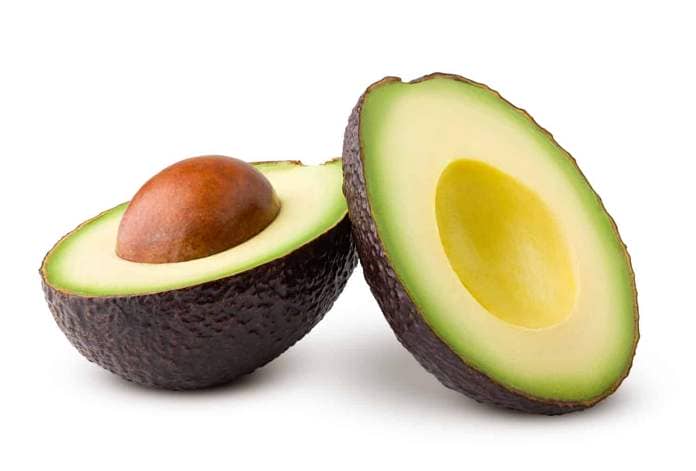
©grey_and/Shutterstock.com
All parts of the avocado plant contain persin, a toxin that can cause cardiac distress in birds. Persin is a fungicidal toxin that is present in various parts of the avocado plant, including the fruit, leaves, bark, seeds, and skin. It’s a naturally occurring compound that is structurally similar to a fatty acid.
For birds, avocado parts should be avoided altogether. However, the flesh of the avocado itself is safe for human consumption and is a nutritious addition to meals.
2. Chocolate
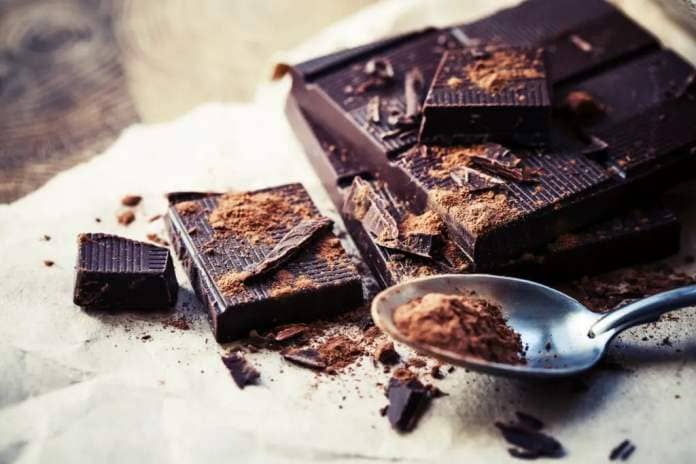
©iravgustin/Shutterstock.com
Chocolate contains theobromine, which is toxic to birds and can cause vomiting, diarrhea, seizures, and even death. Theobromine is a naturally occurring type of alkaloid, which is a class of organic compounds found in many plants.

Although safe for humans, it can be toxic to some animals, such as birds, as they are not able to metabolize it as efficiently as humans. Overall, theobromine is an important component of chocolate that has both positive and negative effects depending on the context of its consumption.
3. Caffeine
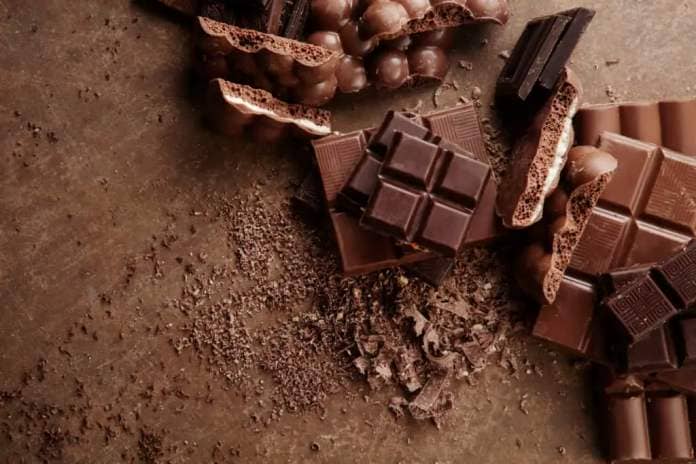
©ivan_kislitsin/Shutterstock.com
Found in coffee, tea, and other beverages or foods like chocolate, caffeine can cause a wide variety of health problems for birds. Even small amounts of caffeine can cause adverse effects in birds, including increased heart rate, arrhythmias, hyperactivity, and even cardiac arrest.
Caffeine is a stimulant that can affect the nervous system and the heart, and birds are particularly sensitive to its effects. Therefore, it’s best to avoid feeding birds any products that contain caffeine, such as coffee, tea, or chocolate.
4. Alcohol
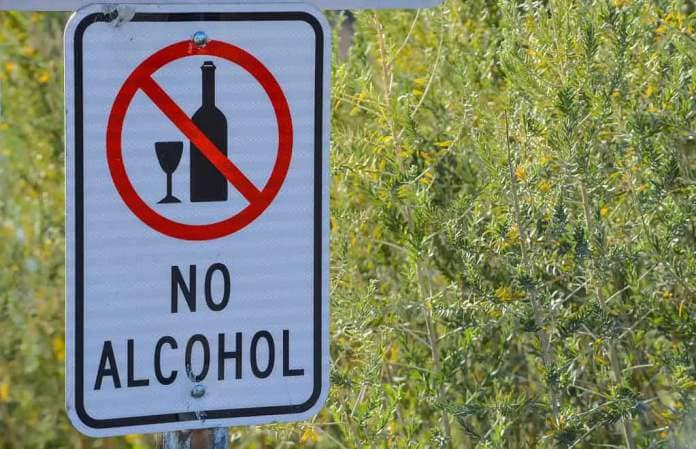
©Norm Lane/Shutterstock.com
Even small amounts of alcohol can cause severe health problems for birds. Alcohol is bad for birds because it can depress their organ systems and cause severe health problems or even death. Birds have a high metabolic rate and a small body size, so the effects of alcohol can be much more potent and harmful for them compared to humans. Alcohol consumption can affect a bird’s coordination, balance, and cognitive abilities, making it difficult for them to fly and navigate properly.
Moreover, high doses of alcohol can increase the risk of liver failure, heart problems, and other complications in birds. Therefore, it’s important to keep birds away from any products that contain alcohol, including beer, wine, spirits, and other alcoholic drinks.
5. Salt
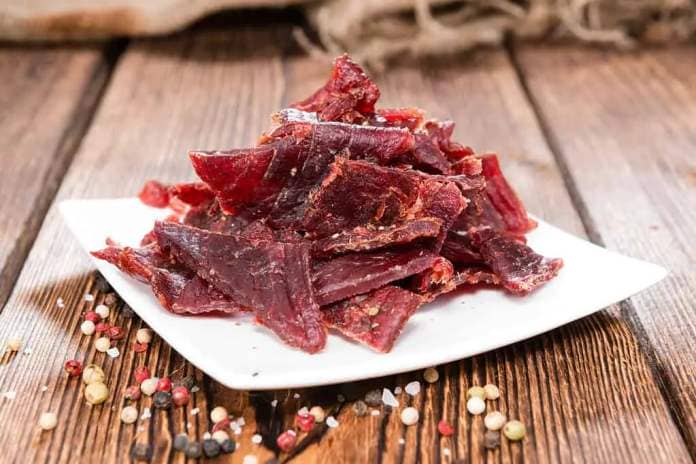
©HandmadePictures/Shutterstock.com
Salt can be harmful to birds because their bodies are not able to metabolize it as efficiently as humans. Birds have a low tolerance for salt, and excessive salt intake can cause dehydration, kidney damage, and other health problems. Salt can also affect the nervous system of birds, leading to disorientation and other issues.
Additionally, birds naturally obtain the small amounts of salt they need from their diet, so supplementing their food with additional salt is unnecessary and potentially harmful. It is advisable to avoid giving birds any meals high in salt, such as salty chips, meats, or other animal foods that contain salt for nutritional value.
6. Fat Trimmings And Fried Foods
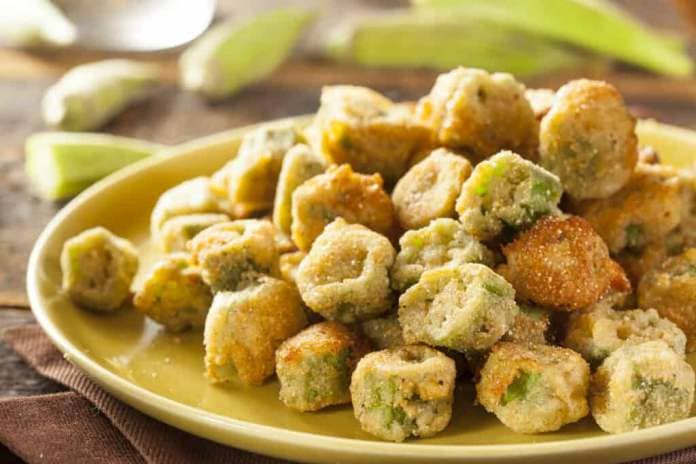
©iStock.com/bhofack2
Fat trimmings and fried foods are high in fat and difficult for birds to digest, which can lead to obesity and other health problems. Birds have a very high metabolic rate and require a lot of energy to maintain their rapid metabolism and body temperature.
While some fat in their diet is necessary, consuming too much fatty or high-calorie food can lead to obesity, liver disease, and other health problems. Also, fatty foods are often high in salt and other additives that can be harmful to birds, as previously explored. A diet composed primarily of high-fat foods can displace other important nutrients in a bird’s diet, leading to malnutrition or other nutritional imbalances.
Since fried foods are typically high in fat, salt, and calories, they can also lead to weight gain and other health problems in birds if consumed in excess. Also, the oils and fats used to fry foods can be harmful to birds if ingested in large amounts, as they can contribute to liver disease and other health issues.
7. Onions And Garlic
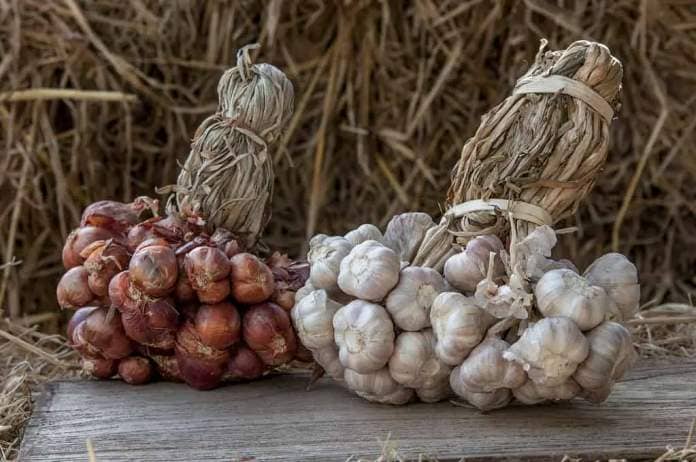
©Tongsai/Shutterstock.com
Onions and garlic can be harmful to birds when consumed in substantial amounts. Both of these foods contain sulfur compounds that can cause hemolytic anemia in birds, which is a condition that destroys the red blood cells and leads to severe health problems or even death. Additionally, the strong flavors of onions and garlic can be off-putting to birds and make them less interested in eating their regular food. Therefore, it’s best to avoid offering birds onions and garlic as part of their diet to prevent any potential health problems.
8. Mushrooms
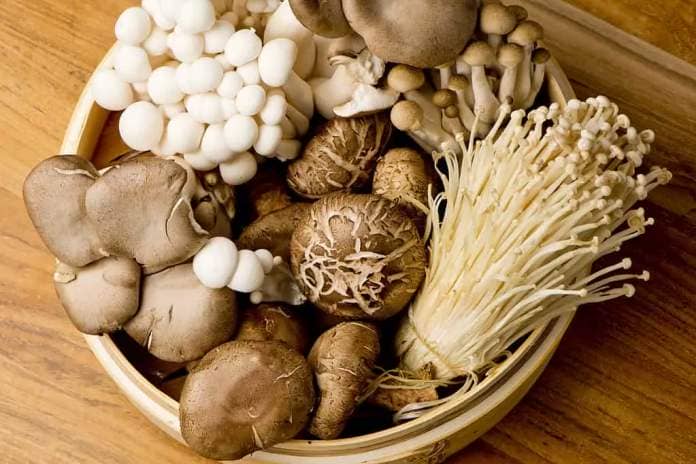
©Marie Sonmez Photography/Shutterstock.com
While not all varieties of mushrooms are toxic to birds, some of them can be harmful and even lethal in large quantities. Certain mushrooms can cause gastrointestinal problems or liver damage in birds, which can lead to severe health complications or even death. Furthermore, some wild mushrooms can be poisonous to birds, and it can be difficult to identify which ones are safe to eat and which ones are not. Some potentially toxic mushroom species to birds include Amanita muscaria (fly agaric), Amanita phalloides (death cap), and Gyromitra esculenta (false morel). Therefore, it’s generally recommended to avoid feeding mushrooms to birds unless they are safe for human consumption and have been properly prepared.
9. Fruit Pits
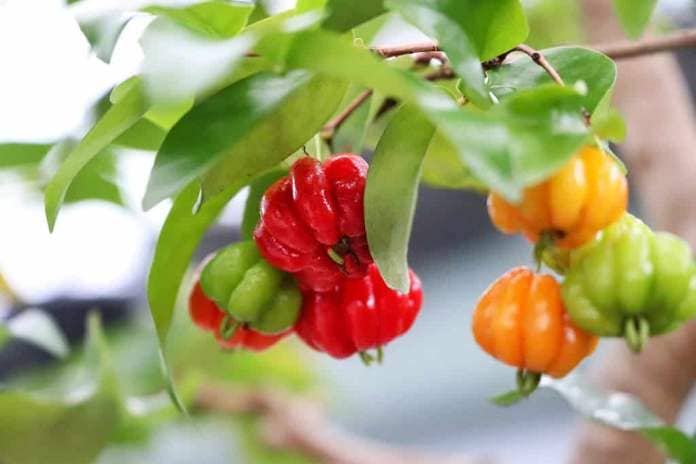
©Shawei26/Shutterstock.com
The pits of fruit can be bad for birds when ingested in large quantities. Many fruit pits contain seeds that can be difficult to digest and may cause gastrointestinal blockages or other health problems in birds. Additionally, some fruit pits (such as those from apples and cherries) contain small amounts of cyanide, which can be toxic to birds if consumed in large quantities. Therefore, it’s generally recommended to remove the pits and seeds from the fruit before offering it to birds as a safe and healthy snack.
10. Dairy Products
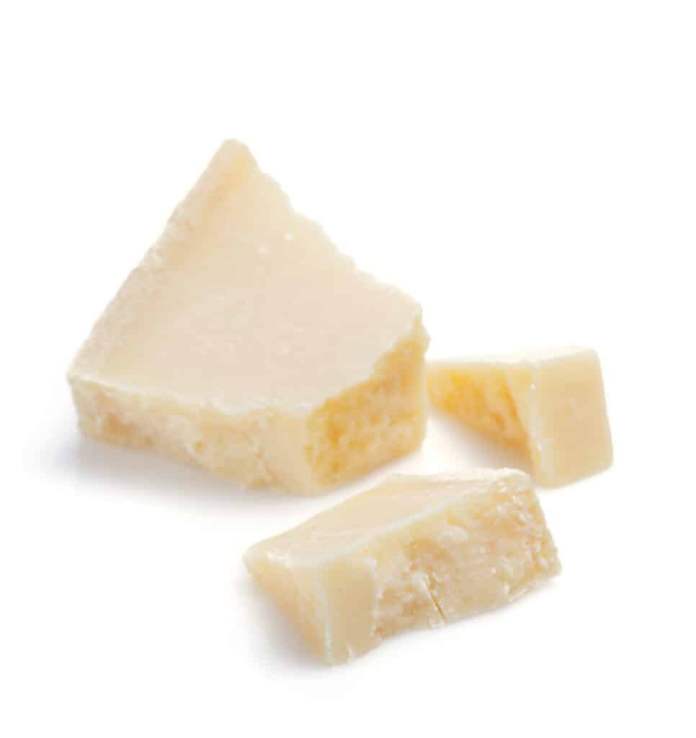
©seregam/Shutterstock.com
Birds lack the enzyme lactase, making them unable to properly digest dairy products, which can cause digestive upset and other health problems. While small amounts of milk and products containing lactose are probably not harmful to most birds, they may not be able to properly digest larger amounts of lactose, which can lead to diarrhea and other gastrointestinal problems if consumed. Additionally, dairy products are not a natural part of a bird’s diet and may displace other important nutrients if fed too frequently.
Does Rice Really Cause Birds To Implode?
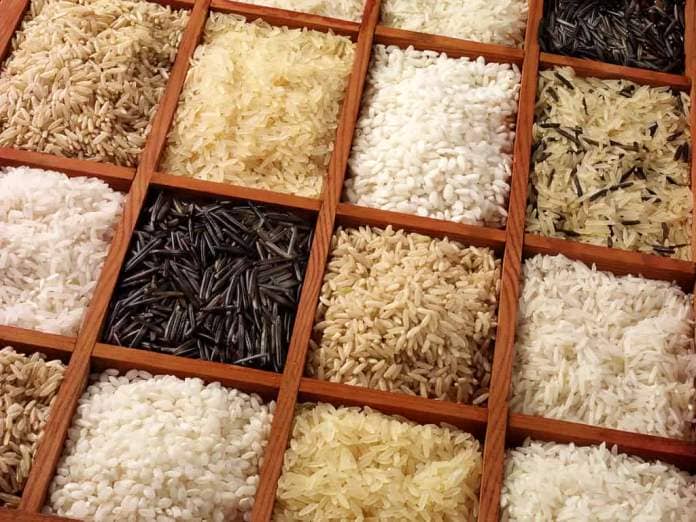
©CKP1001/Shutterstock.com
Contrary to what you have probably been told, birds can eat rice. There is a common misconception that feeding birds rice will cause them to swell up and harm them, but this is actually a myth. While raw rice may be difficult for some birds to digest, cooked rice and other grains can be a healthy addition to their diet.
Various species of birds, particularly pigeons and doves, can eat uncooked rice without any ill effects. However, it’s important to note that rice should not be the only food offered to birds, as they require a diverse diet for optimal health.
When feeding birds rice, it’s recommended to use brown or wild rice, which is more nutritious than white rice. Additionally, it’s important to ensure that the rice is not seasoned or mixed with other ingredients that may be harmful to the birds.
Should You Feed Wild Birds?
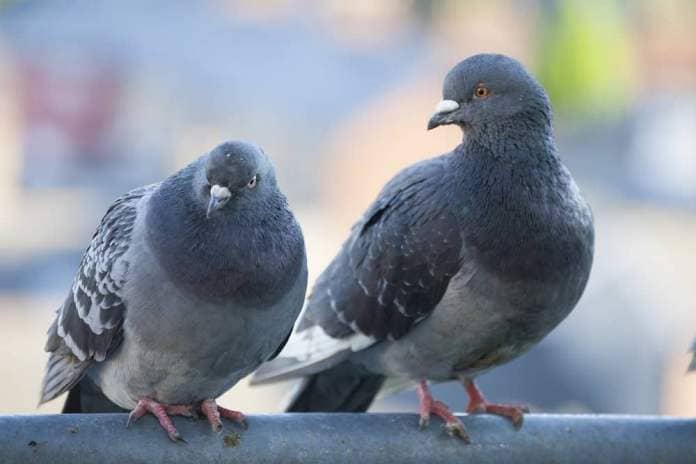
©Julie A Lynch/Shutterstock.com
Feeding wild birds is a topic of debate among experts. While there are some benefits to feeding birds, such as increased survival rates during harsh winters and the pleasure of observing birds up close, there are also potential risks and downsides to consider. One of the main concerns is that feeding birds can alter their natural behavior and migration patterns. Another concern is that feeding can attract large numbers of birds, leading to the spread of diseases among them. Additionally, improperly maintained bird feeders can become breeding grounds for bacteria and other harmful organisms.
Overall, if you choose to feed wild birds, it is important to follow best practices, such as using clean, well-maintained feeders and offering appropriate foods that are safe for the birds to consume. It’s also important to note that in some areas, it may be illegal to feed certain species of birds to prevent their overpopulation and reduce the spread of disease.
How To Properly Feed A Pet Bird
To properly feed your pet bird, it’s important to provide them with a balanced and varied diet that meets their nutritional needs. This can include commercially available bird food pellets, which are specially formulated to provide the necessary vitamins and minerals birds need, as well as fresh fruits and vegetables. It’s important to limit the amount of sugary and fatty foods like seeds and nuts, as too much of these can lead to obesity and other health problems.
In addition to offering a balanced diet, it’s also important to ensure your bird has access to fresh clean water at all times. If you have concerns about your bird’s diet or health, it’s always best to seek advice from a qualified veterinarian or avian nutrition expert.
In Conclusion
Feeding wild birds can seem like a kind and generous act, but it is actually harmful to their health and survival. Birds require a specific diet and feeding them foods that are not part of their natural diet may lead to negative health effects and dependency on humans for food. Furthermore, not all human foods are safe for birds to eat, including chocolate, avocado, and salty snacks. Therefore, it is best to avoid feeding wild birds altogether and instead provide clean water and appropriate bird feeders to supplement their natural diet.


